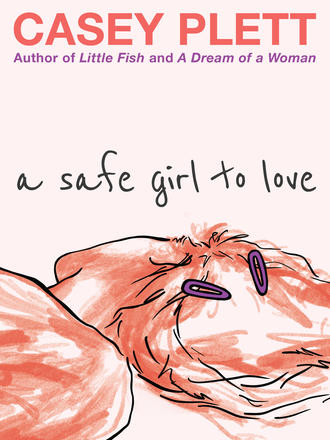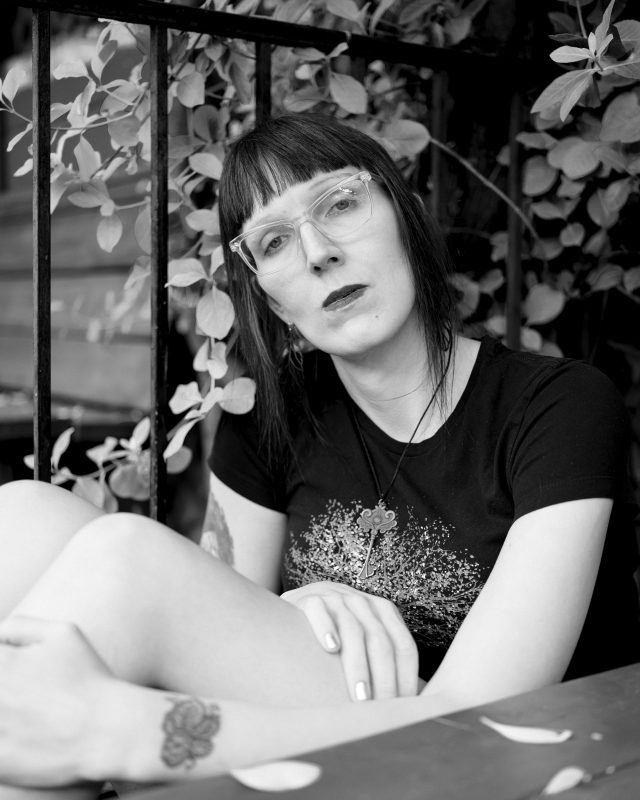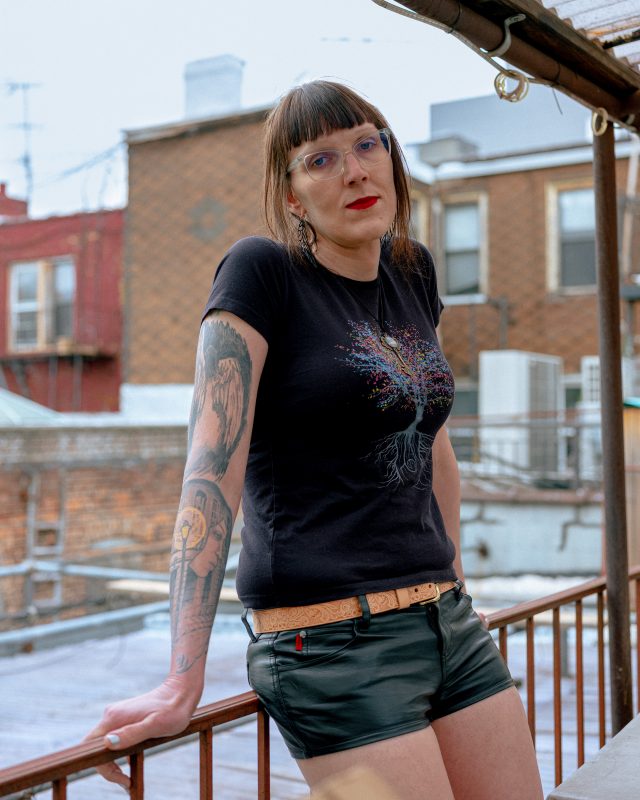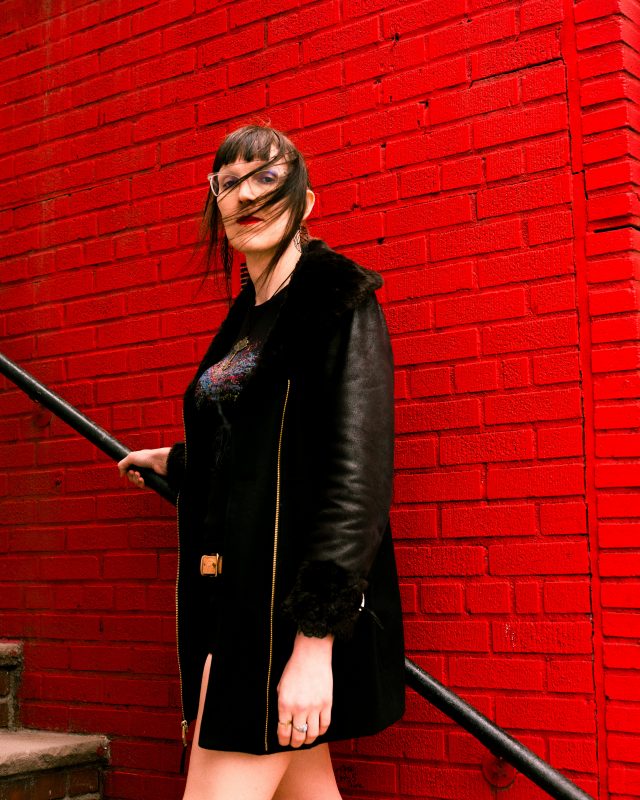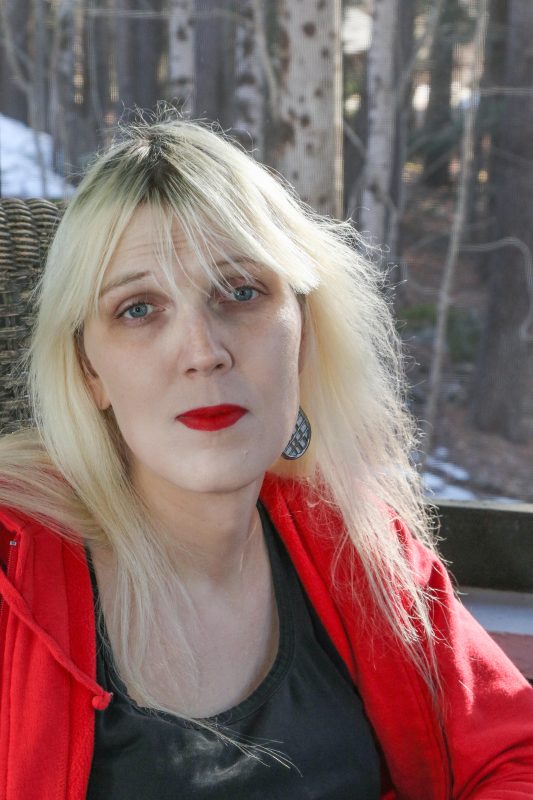

Casey Plett
Award-winning Author
Lambda Literary Award Winner
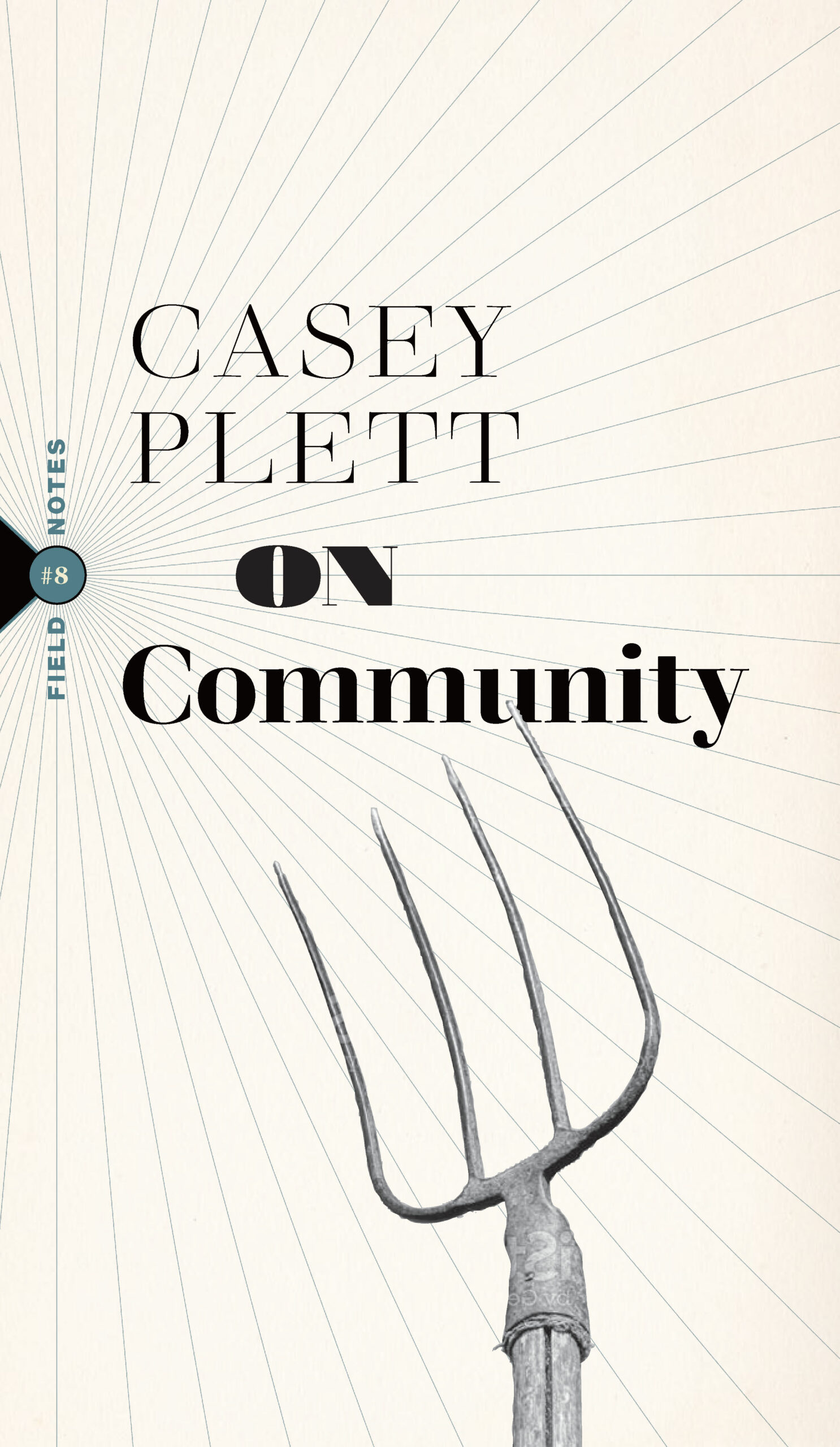
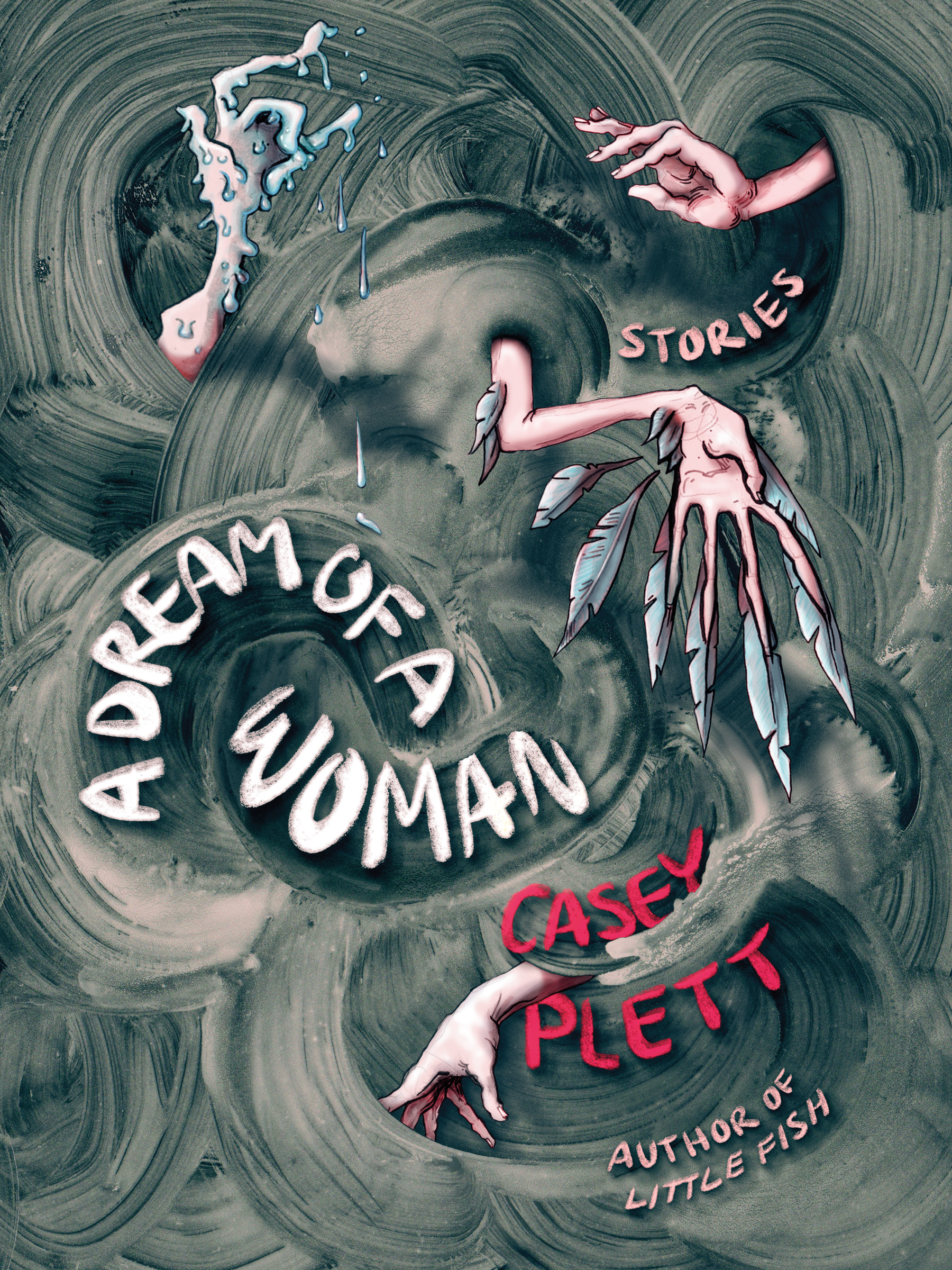
Readings &
Lecture Topics
- It Doesn’t Belong to Me Anymore
- Bravery: Assigned (Farce) or Personal (True)
- Ephemerality of Books and Reading
- Natural Links of Queer and Mennonite Literature
- An Evening with Casey Plett
Biography
“Plett’s characters work because they are whole, made so by their flaws and downturns as much as their triumphs and successes. Her treatment of her characters shows us clearly the cracks and the scars that have made them. Plett tells beautiful stories of trans women as they exist in the world: tangible, fallible, tender, and hardened.” –Xtra
“Plett has captured the multitude of emotions and decisions that can overwhelm our lives, from loneliness and self-destruction to the redemptive power of family and self-love.” –The Advocate (“Best Books of the Year”)
“Exquisite, riveting, transformative, reasonably pissed off, and joyously and riskily generous.” –Trish Salah
Casey Plett is the author of A Dream of a Woman (Arsenal Pulp, 2021), which was longlisted for the Scotiabank Giller Prize; Little Fish (Arsenal Pulp, 2018), winner of a Lambda Literary Award, the Firecracker Award for Fiction, and the Amazon First Novel Award in Canada; and A Safe Girl to Love (Topside Press, 2014; Arsenal Pulp, 2023), also a winner of a Lambda Literary Award. She was the co-editor of Meanwhile, Elsewhere: Science Fiction and Fantasy From Transgender Writers (2017) alongside Cat Fitzpatrick. Most recently, Plett authored the essay collection On Community (Biblioasis, 2023), which draws on a range of firsthand experiences to start a conversation about the larger implications of community as a word, an idea, and a symbol.
Of her collection of short stories, A Dream of a Woman, The Rumpus observed, “I’ve always admired Plett’s ability to capture the tenderest and most complicated intimacies between characters. Exploring addiction, loss, consent, and shifting desires, each story in her extraordinary new collection is somehow even more tender and emotionally complex than the last.” In their reflections for “Best Queer Books of the Year,” Autostraddle said of the book, “Plett’s trademark skills at authentic characterization, evocative setting, and insight into the lives of trans women are on full display in this superb collection of short stories. The stories crackle with quiet complexity as they cover topics like a woman returning to her Mennonite roots while visiting a lover and another leaving the Portland’s queer utopia to transition in New York’s anonymity.”
Plett has written for The New York Times, The Guardian, The Globe and Mail, McSweeney’s Internet Tendency, the Winnipeg Free Press, and other publications. She is the publisher at LittlePuss Press.
She holds an MFA from Columbia University and splits her time between New York City and Windsor, Ontario.
Short Bio
Casey Plett is the author of A Dream of a Woman (2021), which was longlisted for the Scotiabank Giller Prize; Little Fish(2018), winner of a Lambda Literary Award, the Firecracker Award for Fiction, and the Amazon First Novel Award in Canada; and A Safe Girl to Love (2014), also a winner of a Lambda Literary Award. She was the co-editor of Meanwhile, Elsewhere: Science Fiction and Fantasy From Transgender Writers (2017) alongside Cat Fitzpatrick. Plett has written for The New York Times, The Guardian, The Globe and Mail, McSweeney’s Internet Tendency, the Winnipeg Free Press, and other publications. She is the publisher at LittlePuss Press. She holds an MFA from Columbia University and splits her time between New York City and Windsor, Ontario.
Visit Author WebsiteVideos
Publications
On Community
Essay, 2023
“Plett’s trademark skills at authentic characterization, evocative setting, and insight into the lives of trans women are on full display in this superb collection of short stories. The stories crackle with quiet complexity.” —Autostraddle
We are all hinged to some definition of a community, be it as simple as where we live, complex as the beliefs we share, or as intentional as those we call family. In an episodic personal essay, Casey Plett draws on a range of firsthand experiences to start a conversation about the larger implications of community as a word, an idea, and a symbol. With each thread a cumulative definition of community, and what it has come to mean to Plett, emerges. Looking at phenomena from transgender literature, to Mennonite history, to hacker houses of Silicon Valley, and the rise of nationalism in North America, Plett delves into the thorny intractability of community’s boons and faults. Deeply personal, authoritative in its illuminations, On Community is an essential contribution to the larger cultural discourse that asks how, and to what socio-political ends, we form bonds with one another.
A Dream of a Woman
Short Story, 2021
Little Fish
Novel, 2018
“Plett has written a book for trans people, but her affecting, beautiful, generous writing welcomes us all to the page.” –Hamilton Review of Books
In this extraordinary debut novel by the author of the Lambda Literary Award-winning story collection A Safe Girl to Love, Wendy Reimer is a thirty-year-old trans woman who comes across evidence that her late grandfather—a devout Mennonite farmer—might have been transgender himself. At first she dismisses this revelation, having other problems at hand, but as she and her friends struggle to cope with the challenges of their increasingly volatile lives—from alcoholism, to sex work, to suicide—Wendy is drawn to the lost pieces of her grandfather’s life, becoming determined to unravel the mystery of his truth. Alternately warm-hearted and dark-spirited, desperate and mirthful, Little Fish explores the winter of discontent in the life of one transgender woman as her past and future become irrevocably entwined.
A Safe Girl to Love
Short Story, 2014 & 2023
Articles & Audio
Read What’s In Print
• How to Write a Love Story: An Interview with Casey Plett – Harvard Review
• At a Trans Singing Conference, Working to Demystify Our Own Voices – them
• Casey Plett on truth, fiction, and the illusion of community – Quill & Quire
• The Coming of Age of Transgender Literature – New York Times
• An Interview with Casey Plett – That Shakesperean Rag
• Ten Questions for Casey Plett – Poets & Writers
• Harry Potter and the order of the deal-breakers – Xtra
• ‘I Am Cait’ Season 1 Finale Recap: The Show Tried. It Really Did. – New York Times
• Finding solace in the delirious beauty of Mitch Hedberg’s jokes – CBC Arts
• Casey Plett: What Does It Mean to Belong? – Lit Hub
• Casey Plett’s A Dream of a Woman – Lambda Literary
• The Eternal Importance of the Artist’s Mystery – MacDowell
Listen to Audio
• 099: A Conversation with Casey Plett – Can’t Lit
• Episode 28: Casey Plett – Glass Bookshop Radio
Selected Writings
“Hazel & Christopher” (an excerpt)
When Hazel grew up and moved out of the prairies, she would learn from movies and the news that small towns were supposed to be poor and dying. But Hazel never thought of her unhappy childhood as horrific, and Christopher’s family was not only happy but rich. They lived in a cul-de-sac next to a canola field in a house with a wide yard sur- rounded by poplars; they were always renovating their basement. If you had pressed Hazel as a child, she maybe could’ve admitted she was jealous. In a glossily submerged way, maybe. Mostly, in that time she just loved being Christopher’s best friend.
When they first touched each other they were eight, sleeping in an old inner room without windows in the basement. They were hyper and laughing hard, and then her eyes were close to the freckles on his shoulders.
They talked about gayness exactly once, just after Hazel and her mom moved across the province. They were on the phone and about to start high school. Hazel was in a stage of proto-transness, a stage in which she was terrified of herself and had no idea why.
She brought it up this way: “What do you think about gay people? Are they okay, or should they be killed? I don’t know.”
“They should probably be killed,” Christopher said. “Okay.”
They talked on the phone a lot after Hazel moved away. She’d always wondered if Christopher remembered that. It would’ve been unusual for two boys. (“Boys.”) Her mom let her call him for twenty minutes on the weekend. Long distance. Hazel would say, “But you talk to your boyfriend every night for hours!” And Hazel’s mom, forever calm, would respond, “This’ll make more sense to you as an adult.”
It did make sense to Hazel now, if not in the way her mother prob- ably imagined.
Christopher was always happy to talk. He didn’t have the same emotional needs as Hazel back then, and even as a young teenager, Hazel recognized that. But he always made time for her. He did.
Hazel last saw Christopher when she was twenty. Home from out west, knowing her boy days were numbered, as were the reasons to come back to this part of the world. She and her mom were at her aunt’s for Christmas, and Hazel walked from the other end of town in the snow, the creak of her boots the only sound in the pale afternoon sunset.
She walked in the door of Christopher’s house and no one was on the first floor. She went down to the basement, noticed a bedroom off to the side with power tools everywhere and half-installed hardwood floors. In the rec room, Christopher and a couple other guys were watching The Departed with a two-four of Bud. (There was a partic- ular kind of American, Hazel had learned since, who was bummed to know that Canadians drank Bud.) One of the guys said he wanted more beer but hated the girl who worked at the vendor.
Hazel had felt herself teetering on an edge then, between a fear of how volatile it might be to continue knowing these boys and a distant sadness at the knowledge that she might never see these stupid fuck- ers again.
Funnily enough, there had been a trans guy in town, her age, who’d come out around a year prior. He’d announced himself, then right away skipped off to the city. Hazel brought up his name like a test, like hazarding an exhibition round.
“So you guys hear about …?” “Oh God, the dyke!”
And everyone laughed.
“I have no problem with gay people,” Christopher said. “But gender
reassignment …” A visible shiver came over him, something real and revulsive. He shook his head like he’d stomped on something crawly and was trying to forget about it.
When the two-four ran out, they all went to a party where the kitchen counters were so covered with bottles you couldn’t see the laminate. A snarling boy said, “Who the fuck is that?” when Hazel arrived and Christopher said, “It’s cool. He’s from here,” and the boy backed off and Hazel glowed as if she’d received wings. They all did shots, then played a drinking game, then drank rum out of Solo cups, then shotgunned beers in the garage with their coats on, and when Hazel stumbled into a wall, the boys laughed and said incredulously,
“Are you drunk?!” It was seven p.m. and the moon was shining behind a blanket of clouds and after that they went to the bar.
Weeks later Hazel got on a plane and flew back west, and then she transitioned, then dropped out of school, and then fell away from all she’d ever known. And as the following decade churned, in tiny rooms in roiling bright cities, the thought of Christopher would flit down onto her, like a moonbeam startling her awake.
~
Ten years later, she crash-landed back home—untriumphantly bunking with her mother in the city, the prairie winter beginning its months- long descent into lightlessness. And, among other things, she began to search for him.
She didn’t have any friends left in Pilot Mound. Her aunt wouldn’t talk to her, and her mother didn’t know anything. Hazel couldn’t even fucking find anything about Christopher on social media. Last she’d heard, years ago, he’d moved to the city, too. Even his parents she couldn’t track down.
Idly and with pleasure, she set up her OkCupid preferences for him—boys of a certain age and height range. She looked for boys with red hair and dustings of freckles around their collarbones. She checked this every week or so. Whenever she heard of anyone with the name Chris, she would ask, “No chance you mean Christopher Penner, do you?”
Hazel really didn’t expect anything to come of this. Her searches were like periodically buying a lottery ticket: a nice, dependable, dopamine-filled surge where the come-up of hope somehow always eclipsed the comedown of disappointment.
She wasn’t doing much with her days besides going to AA and vol- unteering with a nascent sex workers’ rights organization, of whose members Hazel was somehow the only one who’d ever touched boy parts for money. The nights she was home, she made dinner for her mom, though usually Hazel’s mom was at her boyfriend’s place or at work, and usually that suited Hazel just fine.
She had no idea what to do with her existence—if she had a future, or if she wanted one. In the absence of the alcohol she’d flooded herself with for half her life, her tired, newly sober body had handed her a sense of alertness she hadn’t felt since she was a teenager. At the same time, she also felt herself turning into a slug as that body barely moved. Many days, she never left the house. She slept and watched Netflix and cooked.
Hazel figured, sooner or later, one of three things would happen:
- Welfare would dump her.
- She’d fall off the wagon.
- Her mom would move in with her boyfriend, who, no matter
how well he got along with Hazel, would be unlikely to, in tandem, take in a thirty-year-old transsexual ex-hooker in recovery.
Or maybe all of those things would happen at once. Regardless, she didn’t imagine this quiet un-life would last forever. So, in the meantime, she hoarded her cash, went to AA and the nascent sex work- ers’ rights organization, and shut off her brain. And one of few bright spots in imagining her future was when she indulged this loving spot in her past and scanned the internet in search of Christopher.


